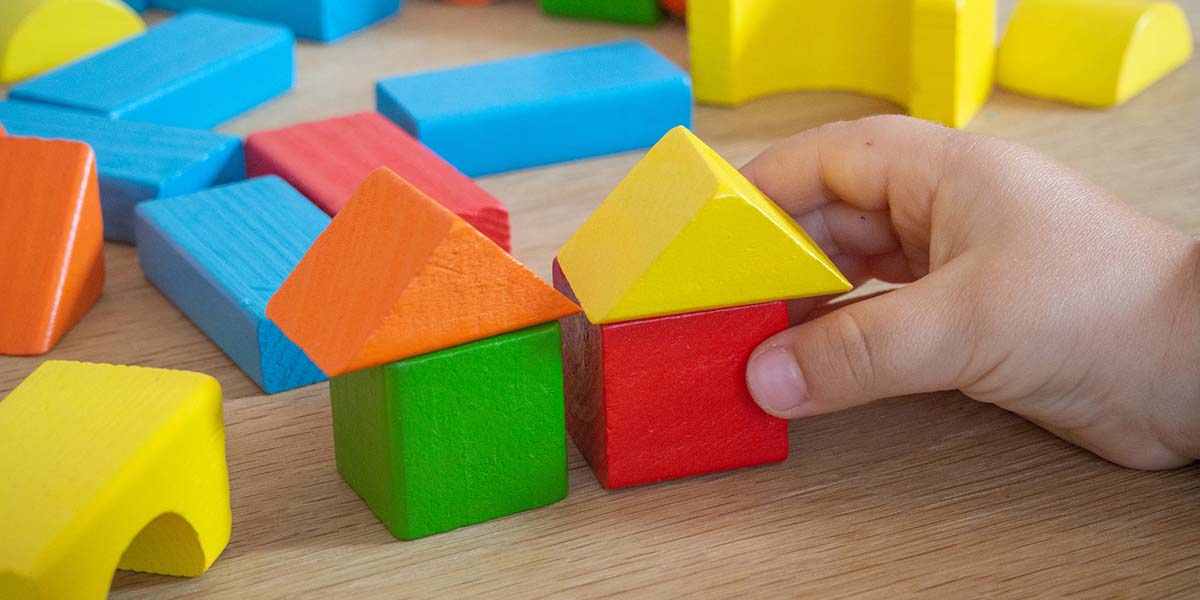
Understanding Play Therapy: A Guide for Parents
Imagine a child who struggles to express their emotions or process difficult experiences. Now, imagine them finding healing and clarity through play - something as natural as breathing. Play therapy isn’t just about toys and games; it’s a powerful, therapeutic tool that helps children communicate, heal and grow in ways words alone cannot. But how exactly does it work? We want to share and explore what play therapy is and how it works to help your child thrive.
In the process of growing up, children can experience life events that are hard to cope with, such as parents divorcing, moving, loss of a loved one, bullying, or other traumatic events. Some children need more help in these areas. Since children have a hard time talking about what bothers them through words, they may act out or show their feelings.
play=language, toys=words
In play therapy, children will be provided with toys for them to express their emotions. Think of play as their language and toys as their words. It’s deeply special to see how children can communicate or play with someone who understands. Through play, they are able to release their emotions by playing out different scenarios with toys. Maybe you have experienced something similar. Connect with a time where you felt understood by someone (a close friend or relative) when you were upset or bothered by something.
For children, this is what play therapy is. They are free to use paints, sand trays, puppets and many more toys to express their thoughts to develop their autonomy, capacity to regulate big emotions, and a sense of responsibility.
Generally, children will learn emotional expression and may experience behavioral improvements. Garry Landreth, author of Play Therapy: The Art of the Relationship, explains what children learn in Play Therapy.
- Children learn to respect themselves
- Children learn that their feelings are acceptable
- Children learn to express their feelings responsibly
- Children learn to assume responsibility for themselves
- Children learn to be creative and resourceful in confronting problems
- Children learn self-control and self-direction
- Children gradually learn, at a feeling level to accept themselves
- Children learn to make choices and to be responsible for their choices
Children from the ages of 3-12 (the maximum age may be lower depending on the child) and various backgrounds can benefit from play therapy. If a child is experiencing difficulty expressing their feelings or managing behavioral or emotional struggles, play therapy can be a great tool for their healing.
managing expectations
So what can you expect before and after a play therapy session? Depending on the developmental needs of the child, a play therapy session could be 30-45 minutes. A child that is three would more likely need a 30 minute session versus a child that’s nine that could have a 45-50 minute session.
Typically, I will meet with the parent for a consultation before meeting with the child for a play therapy session. This will give you an opportunity to share your child’s needs, ask questions about play therapy, and review expectations for play therapy. When you come in with your child for the first session, I will introduce myself to them and then say, “It’s time to go to the playroom.” When we get into the playroom, they will be introduced to a room full of toys that they can explore during their session.
After the first session, I typically meet with parents once per month to give general information about how their child is doing and share what needs to be shared. This is also a time to hear about family dynamics and how you, the parent, are experiencing your child. You can expect to be met with compassion and curiosity because we are a team to help your child!
I specialize in Play Therapy for children who need extra support expressing their emotions and are displaying behavioral issues. Contact me to learn more how play therapy can help your family process and understand your kid’s big feelings and thoughts.
Imagine a child who struggles to express their emotions or process difficult experiences. Now, imagine them finding healing and clarity through play - something as natural as breathing. Play therapy isn’t just about toys and games; it’s a powerful, therapeutic tool that helps children communicate, heal and grow in ways words alone cannot. But how exactly does it work? I want to share and explore with you what play therapy is and how it works to help your child thrive.
processing difficult events
In the process of growing up, children can experience life events that are hard to cope with; such as parents divorcing, moving, loss of a loved one, bullying, or other traumatic events. Some children may need more help in these areas. Since children have a hard time talking about what bothers them through words, they may act out or show their feelings.
In play therapy, children will be provided with toys for them to express their emotions. Think of play as their language and toys as their words. It’s deeply special to see how children can communicate or play with someone who understands. Through play, they are able to release their emotions by playing out different scenarios with toys. Maybe you have experienced something similar. Connect with a time where you felt understood by someone (a close friend or relative) when you were upset or bothered by something.
For children, this is what play therapy is. They are free to use paints, sand trays, puppets and many more toys to express their thoughts to develop their autonomy, capacity to regulate big emotions, and a sense of responsibility.
Generally, children will learn emotional expression and may experience behavioral improvements. says Garry Landreth, author of Play Therapy: The Art of the Relationship and founder of the Center for Play Therapy at the University of North Texas. Here's how he explains what children learn in Play Therapy:
- Children learn to respect themselves
- Children learn that their feelings are acceptable
- Children learn to express their feelings responsibly
- Children learn to assume responsibility for themselves
- Children learn to be creative and resourceful in confronting problems
- Children learn self-control and self-direction
- Children gradually learn, at a feeling level to accept themselves
- Children learn to make choices and to be responsible for their choices
Children from the ages of 3-12 (the maximum age may be lower depending on the child) and various backgrounds can benefit from play therapy. If a child is experiencing difficulty expressing their feelings or managing behavioral or emotional struggles, play therapy can be a great tool for their healing.
So what can you expect before and after a play therapy session? Depending on the developmental needs of the child, a play therapy session could be 30-45 minutes. A child that is three would more likely need a 30 minute session versus a child that’s nine that could have a 45-50 minute session. Typically, therapists will meet with parents for a consultation before meeting with the child for a play therapy session. This will give you an opportunity to share your child’s needs, ask questions about play therapy, and review expectations for play therapy. When you come in with your child for the first session, your therapist will likely say hello and then, “It’s time to go to the playroom," where they will be introduced to a room full of toys that they can explore during their session.
After the first session, therapists typically meet with parents once per month to give general information about how their child is doing and share what needs to be shared. This is also a time to hear about family dynamics and how you, the parent, are experiencing your child. You can expect to be met with compassion and curiosity because we are a team to help your child!
Play therapy can be so helpful for children who need extra support expressing their emotions and are displaying behavioral issues. Learn how play therapy can help your family process and understand your kid’s big feelings and thoughts in our resource section here, or explore all of our children's therapists to find the right fit for your family at a Lifeologie Counseling location near you.

About Lifeologie
Lifeologie Counseling was founded in 2000 with one goal in mind — to bring a fresh, innovative approach to the everyday problems of life. Creative solutions to stuck problems®. With our unique multi-specialty, collaborative approach, Lifeologie Counseling helps individuals and families heal their wounds and break out of old, unhealthy patterns.
.png)


.png)
